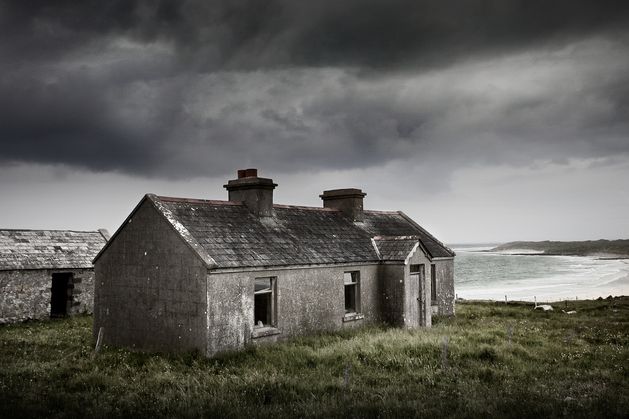When we arrived at the property, it looked nothing like the photos on Airbnb. Also, the listing said the home was spacious and newly renovated, but in reality the rooms were small, the furniture shabby and old, and it smelled of damp.
We’d paid in full before we arrived but only managed to stay in the rental for one night before deciding to check into a hotel an hour away. Even though we told the host we weren’t happy with the accommodation, they’ve been very slow to offer a refund, saying the rental was as described and it was our choice to leave.
We are now out of pocket for four nights’ Airbnb accommodation. Considering the house was nothing like what we had expected, surely we’re entitled to our money back?
Andrew, Co Westmeath
A Holiday accommodation is considered a service. Under consumer law, a service must be provided with reasonable care and skill – and it must match the description (the listing, in your case) at the time that you booked it.
If the rental didn’t match what you paid for, you have rights under consumer law.
It’s probably best in your case to contact the host again. Put your complaint in writing and mention any description in the listing that didn’t match your experience. Include any photos or videos you took.
Your complaint should outline how you’d like the issue resolved, such as a full or partial refund.
After writing your complaint, give the host an opportunity to put things right.
Keep a record of their responses. If you agree a refund, the host must legally provide it “without undue delay” – at most 14 days after contacting them.
If the host doesn’t offer a suitable solution or doesn’t respond, and you first contacted the host within 72 hours of discovering the issues with the property, Airbnb support should help resolve the dispute.
If you believe the host used misleading content to advertise the rental, you can also complain to Airbnb and request that the listing be removed.
If you still can’t come to a suitable resolution with the host, you can then consider pursue the matter through the small claims procedure, which handles claims of €2,000 or less.

The cost of income protection depends on a range of factors. Photo: Getty
‘I was out of work for years due to medical issues. Should I buy income protection?’
Q I’ve been earning a steady income, after years of financial instability due to ongoing health issues. I don’t have a partner or family, so I’m trying to make sure I have an income if there ever comes a time when I’m unable to work.
I’ve heard of income protection insurance. Is it something I should consider, given my medical history? It’s another expense on a single income, so I want to make sure it’s worth the money.
Mary, Galway City
A Income protection is a type of life insurance that provides regular payments to replace part of your income if you’re unable to work due to a medium-to-long-term illness, an injury or a disability.
To be eligible for income protection, you generally need to be self-employed or in full-time paid employment. Payments start after you’ve been unable to work for a set number of weeks or months, depending on the policy you choose.
The cost of income protection depends on factors such as your age, health, job risk level, and the cover amount. When you apply for income protection, you must disclose all relevant facts about your health.
Depending on your health history, the insurance provider may ask you to go for a medical exam before it will confirm your cover. Some providers exclude some pre-existing conditions or charge a higher premium to cover them.
Income protection can be expensive.
Bill cover or wage protector policies, which offer lower levels of cover, are often cheaper and easier to obtain.
Bill cover is designed to cover rent or mortgage payments and utility bills if you can’t work due to illness or injury.
You can choose the level of monthly payment, when payments should start, and a payment term of anything from a couple of years up to when the policy ends (typically by age 68).
A wage protector policy is a form of income protection especially for people in occupations with a higher-than-average risk of accidents or health issues, such as trades or healthcare.
You don’t mention your job but a wage protector policy may be for you if income protection would be too expensive.
Check if your workplace or trade union offers a group income protection scheme, which is usually more affordable than individual policies.
Otherwise, you can go through an insurance broker or buy directly from an insurer.
A broker can help you compare policies, but make sure you understand the policy terms and the broker fees before committing.
Clodagh McCarthy is deputy director of communications at the CCPC. Email questions to gabrielle.monaghan@independent.ie

